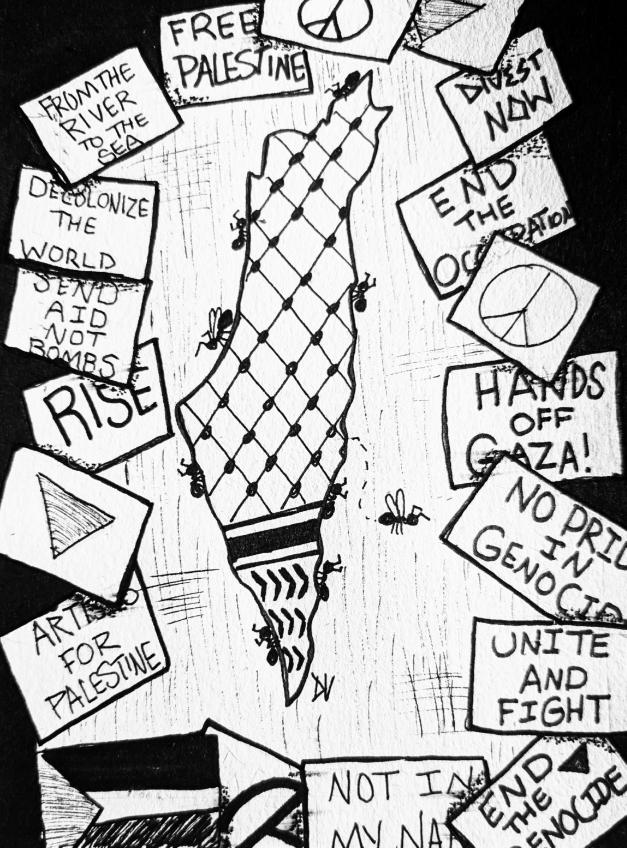
Whether observing All Hallows’ Day, Yom Kippur, or el Día de Muertos, we have many cultural traditions associated with honoring the recently departed. Ants too, meticulously care for each other and safeguard against infection within their nests, cleaning each other and removing the dead to prevent contagion. The evolution of social immunity and its ties to cultural practices around death are fascinating, but in this moment, we must first reflect on our own losses over the last year.
Shockwaves of death and fear spread around the globe, following months and years of escalating tensions, as the events of October 7 and the violent retaliation against combatants and civilians shattered lives across Palestine. While the Israeli response has involved the near-total destruction of a land and its people, the collapse of public healthcare, the bombing of universities and schools, and an assault on the biodiversity of the regions, the dehumanization of Palestinian lives has been a potent weapon in both local and global media discourse. Speaking of the people of Gaza, the deputy mayor of Jerusalem, Arieh King, declared on December 8, “They are not human beings & not human animals, they are subhuman and that is how they should be treated.” He continued, “If it were up to me, I would have … given the order to cover all these hundreds of ants, while they’re still alive.” As if the wanton extermination of life was ever an ethical position to defend, this language strikes at the human/animal binary, weaponizing twisted conceptions of the natural world to justify evil. As the descendant of holocaust survivors, it was not lost on me that language like this has been used before by those with genocidal ambition. Enforcing rigid ideas about the human/animal binary has historically also been used to subjugate women and justify oppression by western powers.
Thomas Friedman, writing in the New York Times, continued to weaponize naturalistic language, juxtaposing metaphors from the animal kingdom to impose a degrading classification system to the various political entities in the Middle East. While he proposed that some were bugs, wasps, and spiders, he likened the dominant western powers to mammalian apex predators like the lion. Contemporary science education has a long way to go to correct mistaken tropes about evolutionary hierarchies.
Friedman and others would do well to consider the interconnectedness of complex ecological systems. A study published in Science earlier this year demonstrated the crucial role acacia ants (Crematogaster sp. – acrobat ants common in many of our gardens) play in protecting a habitat for lions across the African savannah. Without ants, lions would lose the tree-cover that protects them while hunting. We need to abandon false binaries, mistaken hierarchies, and work to create a definition of humanity that isn’t rooted in colonial systems of oppression. As Maya Lehrer put it, “Warmongers show equal contempt for humans and for animals.” Recognizing that, like the ants and the lions, our fates are intertwined, we need to join the voices on the street and around the world calling for a free Palestine and an end to endless wars. •
The opinions expressed in this piece are those of the author and not necessarily those of Motif, other writers, or staff.
Illustration by Danika Valentine

